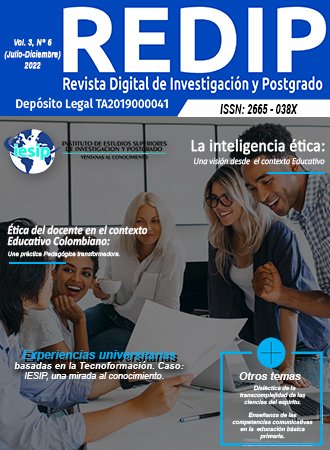Popular and academic knowledgein the Venezuelan universities
DOI:
https://doi.org/10.59654/6dp3hk77Keywords:
Popular knowledge, academic knowledge, university education, Venezuela.Abstract
The geopolitical process that took place in Venezuela from 1999 onwards with the entry into force of the new constitution forced changes in the conception of the State, subsequently giving rise to the new Organic Law on Education and the birth of the teaching State, which is a guiding expression of the State in education in order to guarantee education as a human right. This gave rise to the need for the municipalisation of university education, today known as the Territorialisation of University Education. The socialist state highlighted the need to revalue the management of knowledge from a
territorial perspective, and proposed the massification of education, popular education (concepts from the seventies of the 20th century), thus prioritising the link between popular and academic knowledge from a transdisciplinary vision, the resignification of knowledge and the conception of a university beyond the classroom, with new categories emerging. Thus, social subjects gained importance in the articulation of this knowledge. In conclusion, this process, although it has an epistemological and legal basis, is still being defined in its implementation in the country, as the universities are gradually assimilating it. In this perspective, the present article makes a hermeneutic analysis of popular and academic knowledge in the Venezuelan university education.
Downloads
References
Barreto, A. C. y Salmasi, V. N. (2015). El reto del saber: el dilema entre lo académico y lo empírico. Saber, 27(3), 498-503. http://ve.scielo.org/pdf/saber/v27n3/art15.pdf
Constitución de la República Bolivariana de Venezuela. (1999). Gaceta Oficial del jueves 30 de diciembre de 1999, N° 36.860. Caracas: Ediciones DABOSAN, C.A.
Delgado, B. F. (2012). Desarrollo endógeno y transdisciplinariedad en la educación superior: Cambios para el diálogo intercientífico entre el conocimiento eurocéntrico y el conocimiento endógeno. Serie Cosmovisión y Ciencias Nº 5. Agruco. http://biblioteca.clacso.edu.ar/Bolivia/agruco/20170927044213/pdf_19.pdf
De Sousa, B. S. (2011). La epistemología del sur. Revista Internacional de Filosofía Iberoamericana y Teoría Social. 16(54), 17-39. CESA – FCES – Universidad del Zulia. https://www.redalyc.org/pdf/279/27920007003.pdf
Feyerabend, P. (1996). Adiós a la Razón. Editorial Tecnos.
Ley Orgánica de Educación. (2009). Gaceta Oficial º 5.929 Extraordinario del 15 de agosto de 2009.
Ley de Universidades. (1970). Gaceta Oficial 1429, Extraordinario, del 8 de septiembre de 1970.
Masefoli, M. (1993). El Conocimiento Ordinario. Fondo de cultura Económica.
Navarro, H. (2004). Municipalización de la educación superior. Documento 3. Ministerio de Educación Superior.
Ochoa, A. A. E. (2013) La municipalización universitaria en Venezuela como proceso de transformación. Educere, 17(56), 33-39. https://www.redalyc.org/pdf/356/35630150 010.pdf
Prieto, F. L. B. (2006). El Estado docente. Colección Claves de América. Ministerio de Educación - Fundación Biblioteca Ayacucho.
Scholz, R. W., Häberli, R., bill, A., and Welti, M. (eds.) (2000). Transdisciplinarity: Joint Problem-Solving among Science. Technology and Society. Hoffmanns Verlag.
Zemelman, H. (1999). Epistemología y política del conocimiento Socio-Histórico. En ¿Existe una epistemología Latinoamericana? Editorial Plaza y Valdez.
Published
Issue
Section
License
Copyright (c) 2022 Revista Digital de Investigación y Postgrado

This work is licensed under a Creative Commons Attribution-NonCommercial-ShareAlike 4.0 International License.










